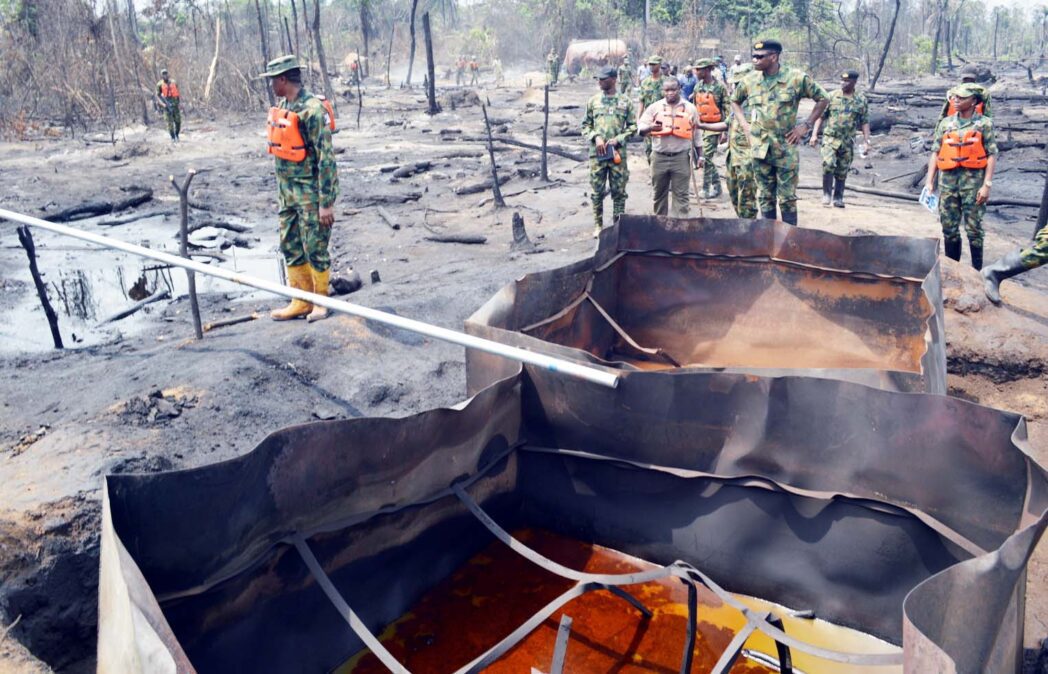
Oil theft: Nigeria loses 7.7m barrels of crude oil in 2023
By Seun Ibiyemi
According to the Nigeria Extractive Industries Transparency Initiative (NEITI)’s 2022 and 2023 Independent Oil and Gas Industry Report released last weekend in Abuja, about 7.68 million barrels of crude were either stolen or lost in Nigeria in 2023.
The loss, however, represents a 79 percent decline from 36.69 million barrels either stolen or lost in 2022.
On crude production, fiscalised crude production in 2022 stood at 490.945 million barrels, compared to 556.130 million barrels produced in 2021, representing an 11 percent decline.
In 2023, fiscalised production stood at 537.571 million barrels, representing a 9.5 percent increase over 2022.
A 10-year trend (2014–2023) of fiscalised crude oil production in Nigeria shows the highest production volume of 798.542 million barrels were recorded in 2014, while the lowest, 490.945 million barrels, were posted in 2022.
The report further revealed that total crude lifted in 2022 stood at 482.074 million barrels as against 551.006 million barrels lifted in 2021. In 2023, total crude lifted was 534.159 million barrels, representing an 11 percent increase from 2022.
On overall revenue generation in the oil and gas industry, the report shows that material companies accounted for $15.549 billion (96 percent) while non-material companies for $695.604 million (4 percent) in revenues generated in 2022.
In 2023, material companies accounted for $21.415 billion (95 percent), but non-material companies accounted for $1.238 billion (5 percent).
The revenues came from 17 identified revenue streams, including proceeds from taxes, oil and gas sales, dividends from NLNG, royalty payments, signature bonuses, gas flare penalties, and concessions, the report noted.
Also, the oil and gas sector has an outstanding amount of over $6.071 billion and N66.4 billion due to the federal government as of June 2024.
On fuel importation, the NEITI report disclosed that a total of 23.54 billion litres of premium motor spirit (also known as petrol) were imported into the country in 2022, while 20.28 billion litres were imported in 2023.
Also, a total of N15.87 trillion was claimed as under-recovery/price differentials between 2006 and 2023, with the highest amount, N4.714 trillion, recorded in 2022.
Speaking at the public presentation of the report, George Akume, Secretary to the Government of the Federation, reaffirmed “the unwavering commitment of the Federal Government of Nigeria to the principles of the Extractive Industries Transparency Initiative (EITI) being implemented in the country’s oil and gas sector by NEITI.”
Akume, who also chairs the NEITI board, acknowledged that information and data provided by NEITI’s independent reports have consistently proven invaluable to the government.
These reports, he noted, have guided policy decisions, reforms, and measures that foster accountability, particularly in the oil and gas sector.
In a sector where opacity could easily lead to leakages, inefficiencies, and corruption, NEITI has become an indispensable partner in ensuring that Nigerians are fully aware of how their commonwealth is managed, he said.
“We consider the EITI not only as a global standard for promoting transparency in the management of revenues from natural resources but also as a tool to strengthen public trust, accountability, and economic growth,” the SGF stated.
In his address of welcome, Orji Ogbonnaya Orji, executive secretary/CEO of NEITI, noted that the report is not just a document but an invitation to action.
“We must collectively ensure that the findings and recommendations are translated into policies that will drive change in Nigeria’s oil and gas sector, ensuring that the wealth derived from our natural resources benefits all Nigerians.”




